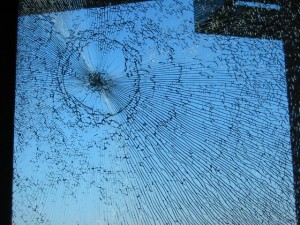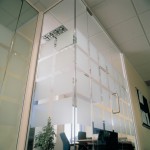Darker, Cooler, Stronger: The Versatile Benefits of Window Tint

Window tint may be most known for enhancing automotive aesthetics, but that’s just one of its many applications. Photo: Mr. Tint (2016)
What’s the first thing that comes to mind when you hear the words “window tint”? If you’re like most people, you probably envision the blacked-out windows of a flashy sports car. However, this stereotypical association does little justice to the many practical benefits of and uses for window tint (also known as window film). Whether applied in a vehicle, residential home or commercial establishment, window tint is an economical way to enhance interior comfort, protection and performance.
Automotive Applications
While often done simply for looks, tinting a car’s windows offers several practical benefits, starting with improved visibility. Besides mitigating the brightness of sunlight, tint significantly reduces glare from the sun during the day and from car headlights at night. Tint’s light filtering capability also provides UV protection for passengers and the vehicle’s interior, the latter of which features components that are susceptible to fading and/or cracking over time. In addition, certain window films are capable of rejecting heat, which keeps the car cooler and minimizes the need for air conditioning. To maximize heat rejection, Jeremy Creager, owner of Perfect Darkness Tint in Burlingame, recommends choosing a crystalline window film, which, even in lighter shades, is designed to keep out the heat.
Believe it or not, the benefits of window tint don’t stop there. Some films can actually strengthen your car’s windows and prevent shattering during an accident or attempted break-in. Speaking of break-ins, an additional bonus of tint’s darkening effect is it can deter car thieves, who are less likely to break in if they can’t see what’s inside. Considering the sum of advantages, it’s easy to see why window tint is one of the most cost-effective aftermarket applications a car owner can invest in.
Residential Applications
Few people realize that window tint’s uses and benefits extend beyond the automotive realm and into the residential. Residential window films can block up to 80 percent of solar energy, which means they protect furniture, carpeting and artwork from fading. They can also reduce heat gain, which helps lower summertime energy bills. What’s more, window films are able to do this without detracting from natural light, so you can keep out the heat without the need for drawn curtains or blinds.

In addition to filtering out light and heat, some window films protect against breakage by reinforcing the glass. Photo: Solar Control Glass Tinting Co. (2016)
While window films typically provide the most benefits during summer, there are some films that improve home energy efficiency year-round. Energy-saving films like EnerLogic utilize low-e insulation technology to go beyond the capabilities of regular reflective film and lock heat inside on cold days. In this way, energy-saving window films help maintain a balanced indoor climate and save on energy costs, regardless of the season.
Besides mitigating the effects of light and heat, residential window films protect against breakage by reinforcing window glass. One of the best products in this regard is panorama safety film, which is designed to prevent shattering by holding broken glass in place.

In commercial settings, decorative window films provide an economical alternative to etched glass. Photo: Solar Control Glass Tinting Co. (2016)
Commercial Applications
In addition to window tint’s light filtering, heat rejecting and glass reinforcing properties, there are specialty applications that are particularly useful in commercial settings. Take decorative films, which allow a business to get creative with glass design without the permanent (and pricey) measure of window etching. Another, more recent application is anti-eavesdropping films, which use cutting-edge technology to block hackers from tapping into confidential information via wireless signals through windows. As window tint technology continues to progress, there’s no telling what other types of applications will emerge in the future.
To find a Diamond Certified window tinting company in your area, visit www.diamondcertified.org.